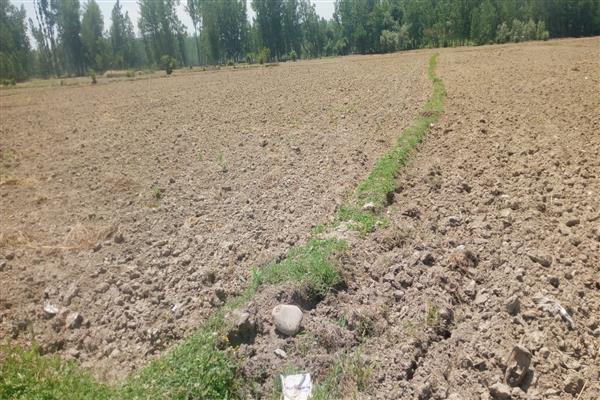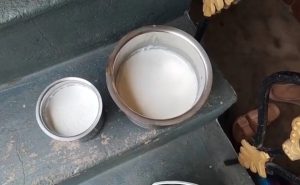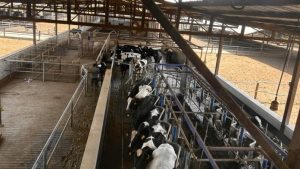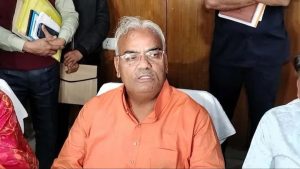
Many farmers from Lelhara, Hajibal, Mohanvij, Banderpora and Padgampora told Rising Kashmir that inefficient water schemes failed to irrigate their paddy land this year due to which they couldn’t plant paddy saplings on a huge area of prime agricultural land.
The farmers said that their land is fed by various water pumps loading water from Jhelum.
They added that many pump stations fail to load water from Jhelum due to a dip in water level during summers.
They added that delayed rains in June of this year triggered a dip in water level of Jhelum.
“Due to the crisis of irrigational water a significant number of paddy farmers missed the sowing season this year,” they said.
Javid Ahmad Lone, a resident of Lelhara, is one such farmer who couldn’t plant paddy saplings on his land this year.
Javid, a father of three, used to earn his livelihood from growing paddy.
“I would sell rice and paddy straw and spend that amount on the education of my kids,” he said, adding that his livelihood has been severely affected due to the crisis of irrigational water in his area.
He said that water schemes sanctioned for the area failed to irrigate their land. “The water schemes have been poorly designed for utilising shallow waters from Jhelum,” he said.
The farmers also said that draught pumps installed at few places have too low capacity to cater to the huge area.
The farmers urged authorities for developing efficient irrigational facilities for paddy land in the area so that they don’t face such a situation in future.
The belt from Padgampora to Patal-bagh along one bank of Jhelum is traditionally a paddy growing region. It is considered as the rice bowl for Pulwama.
Farmers said that the land is not suitable for horticulture activities including apple cultivation.
After missing the paddy season of this year, Javid said that many farmers in Lelhara, Hajibal, Banderpora, Mohanvij and Padgampora turned to maize cultivation with a heavy heart.
An agricultural officer of the concerned area, Agha Syed Mehmood, informed Rising Kashmir that around 1000 kanal (50 hectares) of land have been affected in
Lelhara, Mohanvij, Hajibal and Banderpora due to shortage of irrigational water.
The authorities of the agriculture department added that they have submitted a proposal for compensation to affected farmers to higher offices.
Deputy Commissioner Pulwama, Baseer ul Haq Chaudhry, said that agricultural land in low lying areas and along Jhelum banks has been affected.
He also said that the land which has been brought under conversion from paddy to apple cultivation is also affected due to change in irrigation pattern.
“We have constituted a committee which includes officials from engineering, revenue and irrigation departments for providing an expert opinion on how we can address the challenge of irrigation in future,” he said, adding that a plan has already been formulated in this regard and it stands submitted before higher
authorities.
“The work on the plan will start before the new sowing season of paddy so that maximum irrigational facility is provided to farmers,” he said, adding that the farmers will also be provided with an advisory as to which crop is suitable and profitable in a particular area.
“We will ensure sustenance of staple food yielding crops of our farmers,” the deputy commissioner Pulwama said.

















